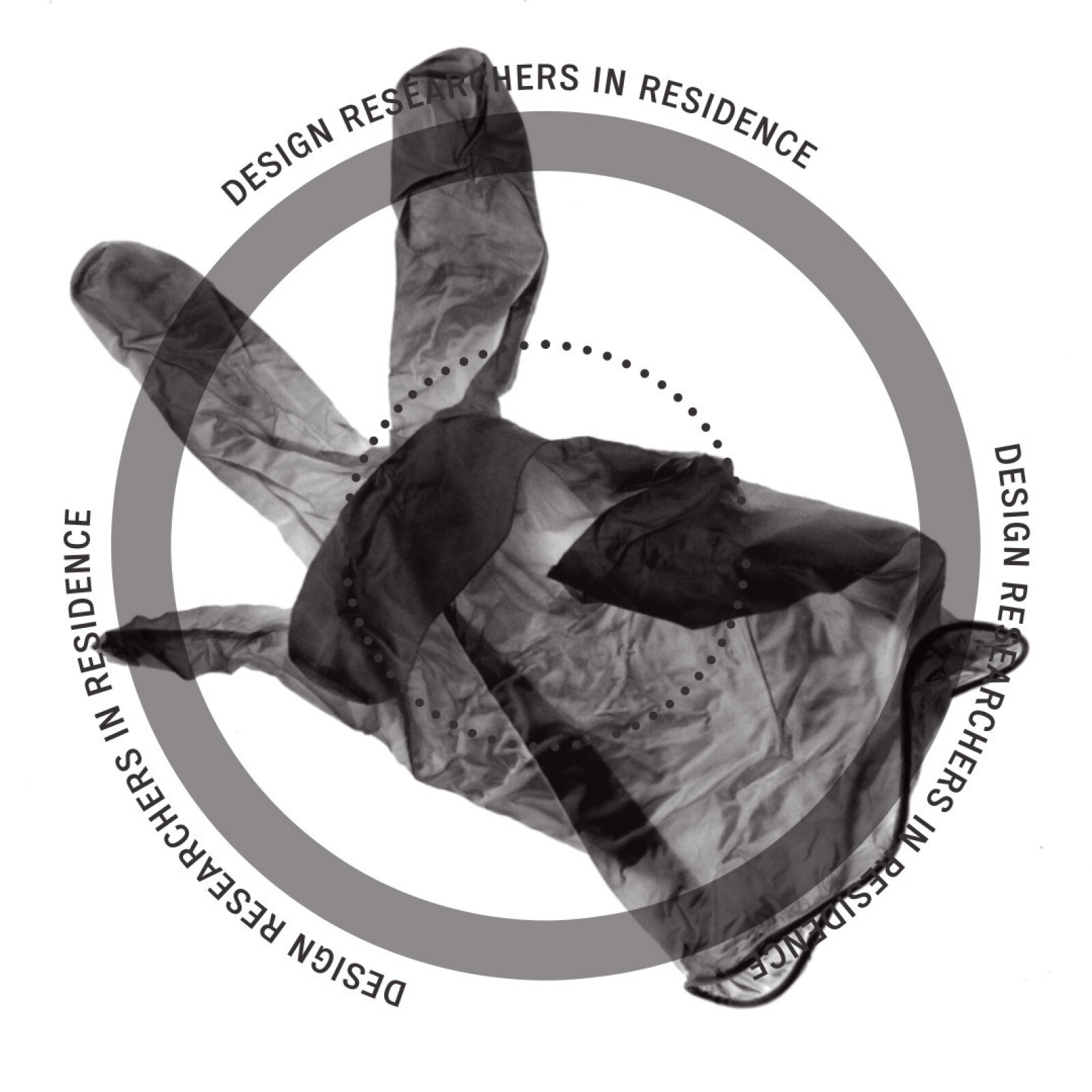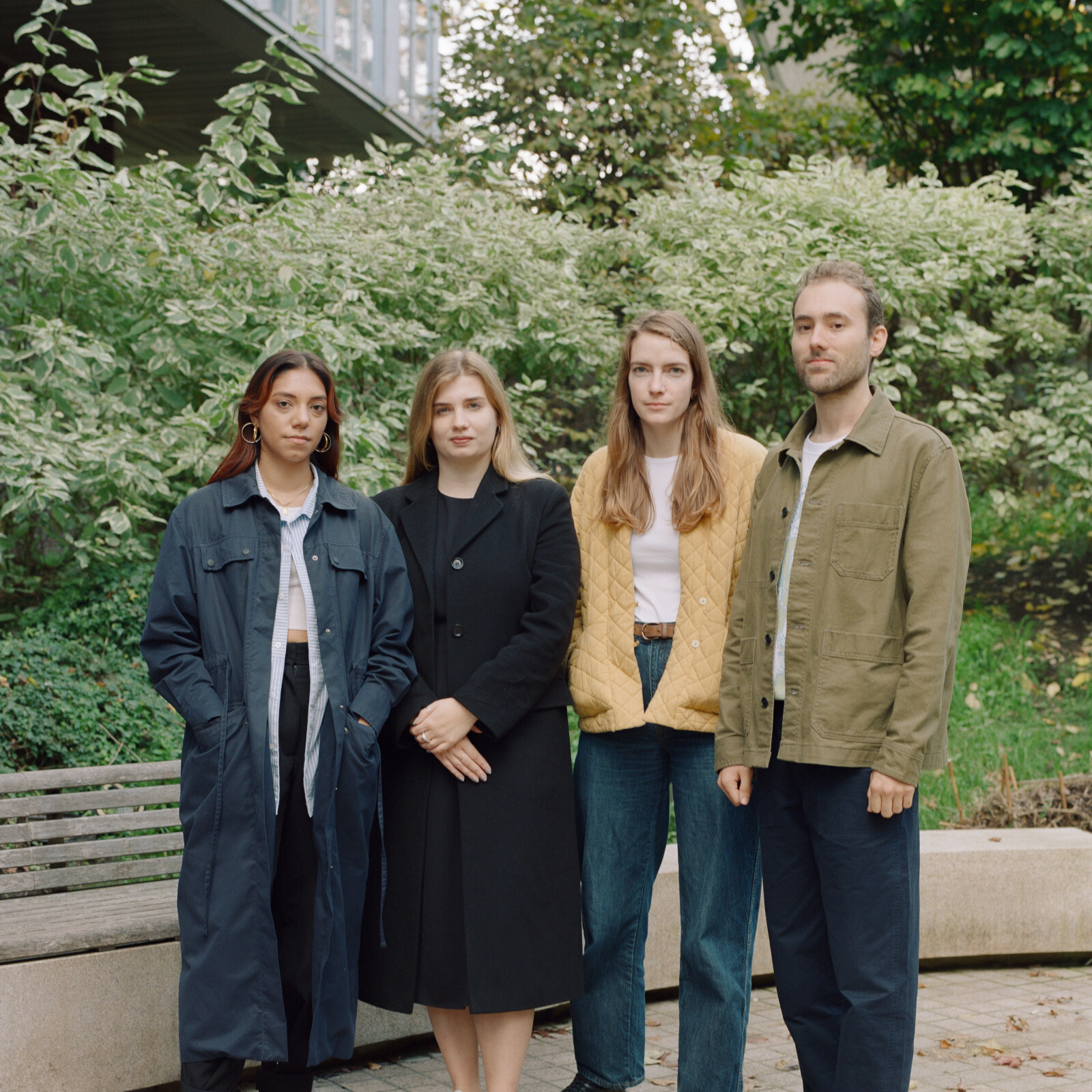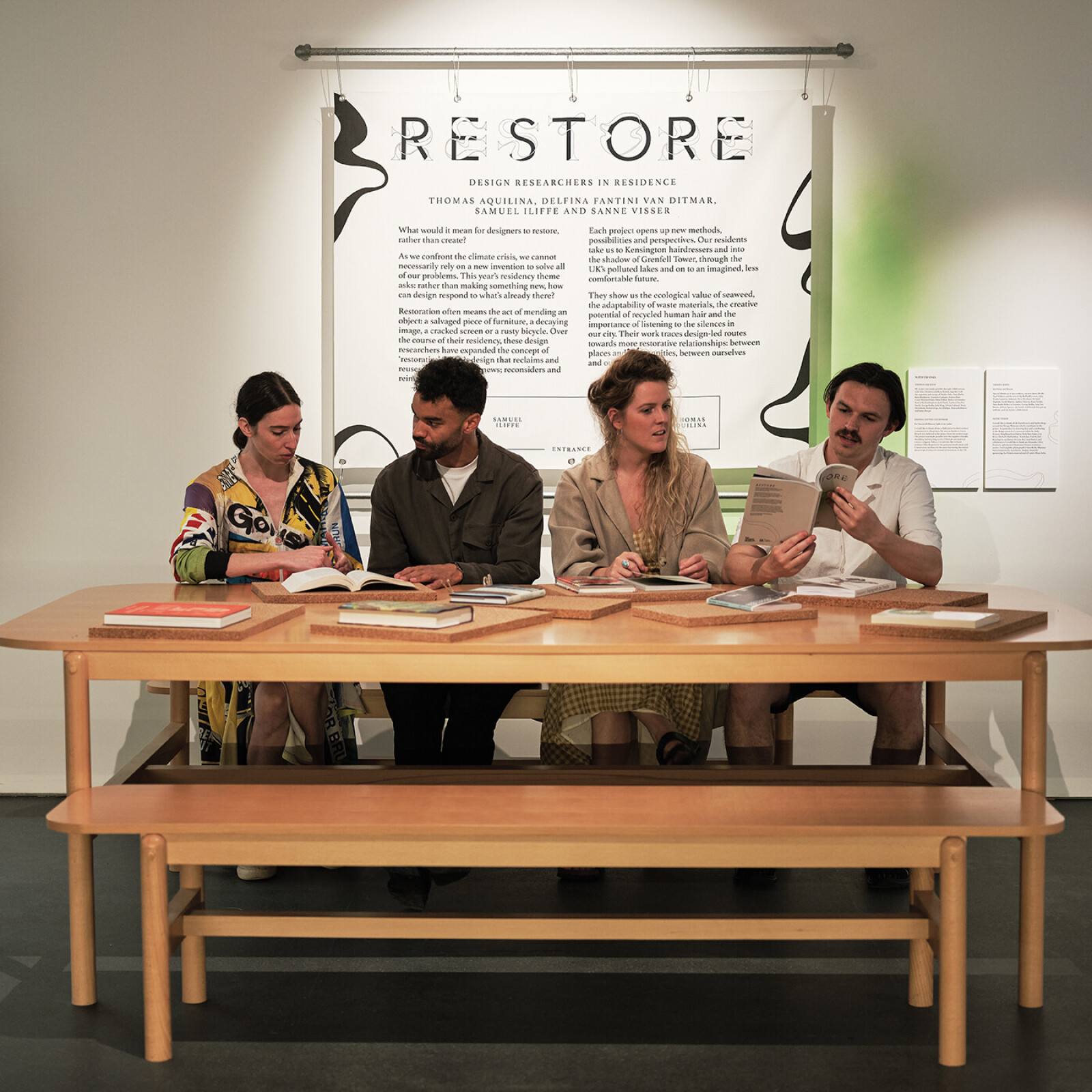Future Observatory and the Design Museum are excited to announce a new cohort of Design Researchers in Residence, who will spend the next year at the museum developing innovative projects that respond to the climate emergency.
This year’s Design Researchers in Residence are April Barrett, Eliza Collin, Jamie Irving and Freya Spencer-Wood. The cohort come from a variety of design specialisms, which is reflected in the diversity of their responses to the brief: the residents will look at a broad range of topics such as the housing retrofit agenda, the scent of plants under environmental stress, peatland restoration, and waste heat produced by data centres.
The 2023/4 residents' projects respond to the theme of ‘Solar’ and are investigating ways in which design can influence our rapidly changing relationship with the heat and light of the sun. The year so far has been marked by dramatic changes in climate systems across the world, with countries struggling with the effects of extreme heat beyond the capacity of local infrastructures. The EU’s climate service has confirmed that 2023 is set to become the hottest year on record.
The programme will culminate in a publication and free public display at the Design Museum in June 2024, through which visitors will learn about a range of impactful new thinking that centres design in the green transition.
Designer Biographies:
April Barrett is a researcher and strategist, who comes from a video game industry background in Canada. She has a BA in Anthropology from McGill University and is a recent graduate of the Design for Change MA program at the University of Edinburgh, where she was awarded the Andrew Grant Postgraduate Scholarship by the Edinburgh College of Art. During her MA, she focused on data centres: facilities that house the computing infrastructure organisations need to store and process data. In particular, she looked at the colonial nature of data centre expansion in Scotland and the tensions that arise when communities have their own visions for land use. April is passionate about applied ethnography methods, digital culture and Big Tech resistance.
During her residency at the Design Museum, April will focus on the potentially damaging impact of data centres on the energy supplies available to local communities. Such centres often compete with neighbouring towns for the vast amount of resources they require to function. Her research will explore the potential for waste heat generated by data centres to be harnessed and redistributed, through an ethnographic study comparing various case studies. She will also question the validity of Big Tech’s increasing entanglement with renewable energy futures.
Eliza Collin is a designer and researcher. Her practice spans areas of ethnography, art, co-design and education. Eliza's work focuses on building sustainable systems, with future perspectives relating to material, resources and the environment. After completing her MA in Material Futures from Central Saint Martins in 2021, she has worked on water-related projects within the government design team Policy Lab, collaborated on a rainwater harvesting system for the BlueCity Rainwater Hackathon (Rotterdam, 2022) and co-developed urban planning and non-human lead policy recommendations for the Gemene Grond residency ‘Water is what we make it’ (Utrecht, 2022). Her most recent work WET ZONES (2023) – developed with the support of Fondazione Studio Rizoma – explored water usage and displacement in Sicily and proposed community-led design solutions which facilitate agency in local water futures.
As a Design Researcher in Residence, Eliza will explore how the scents emitted by plants are changing in response to climate breakdown. This work is a continuation of a project developed in collaboration with agroecologist Dr Coline Jaworski. Eliza will examine the domino effect of this phenomenon on surrounding ecosystems. For example, changes in smell are having adverse effects on wild bees and their pollination, resulting in disruptions to food systems and increasingly oily molecules in the air which may contribute to the ferocity of wildfires. Her residency will also seek to explain humans’ inability to perceive these changes, and understand the implications of this disconnect for our relationship with the natural environment. Her next research stage will be to explore data on plant odour adaptions over the years whilst beginning to connect with experts and affected communities.
Jamie Irving is an architect, educator and co-founder of the design and research practice Entropic Group. Jamie teaches Design Studio and Tectonics at Kingston School of Art and has contributed to lectures, critiques and residencies at the Architectural Association, University of Cambridge and ETH Zurich. His work and interests are focused around enhancing environments through an understanding and awareness of how cultural, ecological and building systems come together.
Jamie’s residency project will explore the role of the sun within the retrofit agenda as a way of establishing a more dynamic relationship between the interior and the exterior. Proposing alternative solutions to the dominant retrofit discourse, his research will explore the insulative and solar heating potential of conservatories. The project is underpinned by the idea that reducing energy consumption within housing offers opportunities for reimagining the relationship between our built environment and the climate.
Freya Spencer-Wood is an interdisciplinary designer and researcher working at the intersection of set design, land politics and queer identity. She regularly collaborates with artists and designers and is an Associate Lecturer at Royal College of Art and Central Saint Martins. She has previously worked at the V&A design studio, We Made That, East and JA Projects on a wide range of exhibition, public realm, community engagement, urban strategy and policy-making projects. Freya graduated from TU Delft in 2019 with an MSc in Architecture, where she was awarded the Best Graduate of Architecture 2019 for her thesis ‘Fragile State(s)’.
Freya’s research at the Design Museum will explore Scotland’s lack of sun, wet climate and peatland restoration as an opportunity for impactful climate action and equitable land reform. The project recognises the inherent link between spatial and climate justice and will investigate bogs as queer spaces: in-between landscapes that are often misunderstood. Her work will urge for greater intersectionality in landscape policy, to expand engagement with the socio-spatial and political crisis of the climate emergency.




